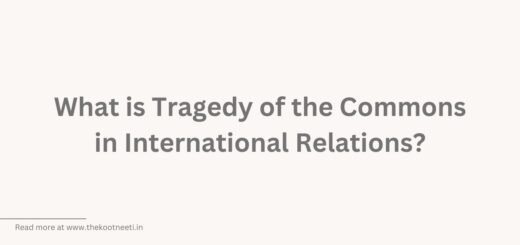International Relations: Definition and Theories

International relations (IR) is the study of the relationships and interactions between states, international organizations, and other non-state actors in the global arena. It is a broad field that encompasses a wide range of issues, including political, economic, military, and cultural interactions between countries and other actors.
International relations is often concerned with issues such as war and peace, international trade, globalization, environmental issues, human rights, and international security. It also involves the study of international law and international organizations, such as the United Nations and the European Union.
International relations is a multidisciplinary field that draws on a range of disciplines, including political science, economics, history, sociology, anthropology, and law. It is concerned with both the theoretical and practical aspects of international relations, and it often involves the analysis of current events and historical developments.
International relations is a crucial field of study, as it helps us to understand the complex and interconnected world we live in and the forces that shape it. It is also an important policy field, as it helps policymakers and other actors to navigate the complexities of international relations and to address global challenges.
What are International Relations Theories?
International relations theories are frameworks for understanding and analyzing the relationships and interactions between states, international organizations, and other non-state actors in the global arena. These theories provide a way of understanding the complex and dynamic nature of international relations and offer insights into the forces that shape the global system.
There are many different international relations theories, and they often have different assumptions, perspectives, and goals. Some of the most influential international relations theories include:
- Realism: Realism is a theory that emphasizes the role of power and national interest in shaping international relations. Realists argue that states are motivated primarily by self-interest and that they pursue power and security in order to protect their national interests.
- Liberalism: Liberalism is a theory that emphasizes the role of international institutions, democracy, and cooperation in shaping international relations. Liberals argue that states can achieve common goals and address global problems through cooperation and the rule of law.
- Constructivism: Constructivism is a theory that emphasizes the role of ideas, beliefs, and norms in shaping international relations. Constructivists argue that the way that states and other actors understand and interpret their environment plays a crucial role in shaping their behaviour.
- Marxism: Marxism is a theory that emphasizes the role of economic and class relations in shaping international relations. Marxists argue that the global system is characterized by capitalist exploitation and that international relations are shaped by the struggle between the capitalist class and the working class.
There are many other international relations theories, and they often overlap and influence each other.


















